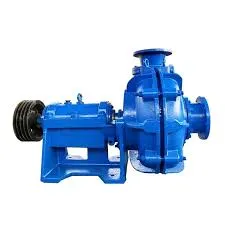Amharic
- Afrikaans
- Albanian
- Amharic
- Arabic
- Armenian
- Azerbaijani
- Basque
- Belarusian
- Bengali
- Bosnian
- Bulgarian
- Catalan
- Cebuano
- Corsican
- Croatian
- Czech
- Danish
- Dutch
- English
- Esperanto
- Estonian
- Finnish
- French
- Frisian
- Galician
- Georgian
- German
- Greek
- Gujarati
- Haitian Creole
- hausa
- hawaiian
- Hebrew
- Hindi
- Miao
- Hungarian
- Icelandic
- igbo
- Indonesian
- irish
- Italian
- Japanese
- Javanese
- Kannada
- kazakh
- Khmer
- Rwandese
- Korean
- Kurdish
- Kyrgyz
- Lao
- Latin
- Latvian
- Lithuanian
- Luxembourgish
- Macedonian
- Malgashi
- Malay
- Malayalam
- Maltese
- Maori
- Marathi
- Mongolian
- Myanmar
- Nepali
- Norwegian
- Norwegian
- Occitan
- Pashto
- Persian
- Polish
- Portuguese
- Punjabi
- Romanian
- Russian
- Samoan
- Scottish Gaelic
- Serbian
- Sesotho
- Shona
- Sindhi
- Sinhala
- Slovak
- Slovenian
- Somali
- Spanish
- Sundanese
- Swahili
- Swedish
- Tagalog
- Tajik
- Tamil
- Tatar
- Telugu
- Thai
- Turkish
- Turkmen
- Ukrainian
- Urdu
- Uighur
- Uzbek
- Vietnamese
- Welsh
- Bantu
- Yiddish
- Yoruba
- Zulu
Telephone: +86 13120555503
Email: frank@cypump.com
ታኅሣ . 05, 2024 10:57 Back to list
septic sewage pumps
Understanding Septic Sewage Pumps A Key Component in Waste Management
When it comes to maintaining a functional septic system, one often overlooked but vital component is the septic sewage pump. These pumps play a crucial role in ensuring the efficient movement of wastewater from your home to your septic tank and, subsequently, to the drain field. Understanding how septic sewage pumps work, their types, and their maintenance can help homeowners manage their sewage disposal effectively.
What is a Septic Sewage Pump?
A septic sewage pump is a device used to transport wastewater from a sewage basin or pit to the septic tank or drain field. In many cases, homes that are situated below the level of the septic tank require a pump to move the sewage upwards or over an extended distance. These pumps are designed to handle solid waste and can navigate the challenges posed by the unique components of septic systems.
Types of Septic Sewage Pumps
There are primarily two types of septic sewage pumps submersible pumps and effluent pumps
.1. Submersible Pumps As the name suggests, these pumps operate while submerged in wastewater, making them quieter and more efficient. They are usually more powerful and are designed to handle larger solids, which is essential for septic systems that see heavy usage.
2. Effluent Pumps These pumps are used to move liquid waste from the septic tank to the drain field. Effluent pumps are typically located above the water level and are designed to handle less solid waste compared to submersible pumps. They generally operate on a float switch mechanism that triggers operation based on the wastewater level.
septic sewage pumps

Importance of Septic Sewage Pumps
Septic sewage pumps are essential for several reasons
- Prevent Backups A properly functioning pump prevents sewage backups which can lead to unpleasant odors and potential health hazards. - System Longevity By ensuring effective waste removal, septic pumps help increase the lifespan of the entire septic system, reducing repair or replacement costs. - Efficiency Effective pumps promote a more efficient waste processing system, allowing for better wastewater management and processing in the drain field.
Maintenance of Septic Sewage Pumps
To ensure that septic sewage pumps operate effectively over time, regular maintenance is necessary. Here are some essential tips
- Routine Inspections Homeowners should have their pumps inspected at least once a year by a professional to check for proper operation and identify any potential issues. - Clean the Pump Regular cleaning of the sump pit and the pump can prevent clogs and maintain efficiency. Remove any debris, grease, or solids that may have accumulated. - Test Float Switches Ensuring that the float switches on the pump are functioning correctly is critical, as they dictate when the pump operates. A malfunctioning float switch can lead to pump failure. - Avoid Overloading Being conscientious about what goes down the drain can prevent damage to the pump. Avoid flushing non-biodegradable materials and chemicals that might harm the system.
Conclusion
In conclusion, septic sewage pumps are a vital component of any home with a septic system. Understanding how they operate, recognizing their types, and practicing regular maintenance can provide homeowners peace of mind regarding their wastewater management. With proper care, a septic sewage pump can ensure that your home's waste is effectively handled, preventing costly repairs and health hazards. Investing time and resources in maintaining this essential equipment is well worth the effort in preserving the integrity of your septic system.
-
ISG Series Pipeline Pump - Chi Yuan Pumps | Energy Efficiency&Compact Design
NewsAug.03,2025
-
ISG Series Vertical Pipeline Pump - Chi Yuan Pumps Co., LTD.|High Efficiency, Low Noise, Durable
NewsAug.02,2025
-
ISG Series Vertical Pipeline Pump - Chi Yuan Pumps | High Efficiency, Low Noise
NewsAug.02,2025
-
ISG Series Vertical Pipeline Pump- Chi Yuan Pumps Co., LTD.|High Efficiency&Compact Design
NewsAug.02,2025
-
Heavy-Duty Mining Sludge Pumps - Wear-Resistant Slurry Handling
NewsAug.02,2025
-
Horizontal Split Case Pump with GPT-4 Turbo | High Efficiency
NewsAug.01,2025










